type
status
slug
summary
tags
category
icon
password
ID
date
Author
URL
Every great or cruel story in the film is confirmed by true history in China. The stories of great village cadres and rural teachers happen almost every day in China. Every year, there are tens of thousands of examples of such dedication to the collective.
“My People, My Homeland” will be released during the 2020 National Day holiday. Anyone familiar with Chinese films can see that there are many similarities between this film and last year’s “My People, My Country”: there are so many stars and so many actors at the box office that they are extravagant; there are so many directors that each director only makes a short story; there are many colors, and the scenes and emotions of the whole film are changeable; and the core is very simple, telling stories in the hearts of the Chinese people.
Although China’s film industry is still a long way from developed countries, more and more Chinese films have achieved commercial success in recent years, at least at the box office level. Judging from the actual results, no matter what regrets and deficiencies still exist in Chinese films, Chinese directors and actors have gradually understood how to please Chinese audiences. One of the most important points is “Chinese movies tell Chinese stories”.
To be fair, Wolf Warrior 2, the box office pinnacle of Chinese films, is not a particularly Chinese story. In this film, actor Wu Jing plays a typical American hero, strong, brave, and tenacious. However, after “Wolf Warrior 2”, Chinese films that have sparked discussion over the years and have achieved good box office results have some unique Chinese spirit.
You are reading Panda!Yoo
A blog about modern Chinese culture and consumption trends. If you are interested in Chinese food, drinks, games, movies, novels, dramas, please follow us.
Join 1,565 other subscribers
In “Nezha: Birth of the Demon Child”, the most Chinese praise is the performance of the protagonist’s father: this is a typical father who is not good at expression, usually overbearing and strict so that his children can hardly feel any warmth, but at a critical moment, the father is willing to sacrifice everything for his children. It cannot be said that such a father is rarely seen in films in other countries, but in the eyes of Chinese audiences, this is indeed a typical image of a “Chinese father”.
In “The Wandering Earth” the common theme of saving the world by heroes in Hollywood has become thousands of ordinary people to save the world in the hands of Chinese directors. Compared with Hollywood films that advocate freedom and individual heroism, The Wandering Earth clearly advocates collectivism, the mass line, obedience, and sacrifice. Such a film theme is rarely seen in the United States today. As a result, the film is considered to be Chinese from the inside out, unlike Wolf Warrior 2, which is just a Hollywood blockbuster made by Chinese people.
Let’s get back to our subject. In “My People, My Country” and “My People, My Homeland”, the core of the story belonging to China is once again highly publicized: similar to “The Wandering Earth”, these two films extol collectivism, the mass line, obedience, and sacrifice.
The following involves spoilers. But if you are a foreign audience, I do not recommend you to watch these two films directly. If you are interested, it is also a good choice to check out the spoilers below.
My People, My Country tells seven stories:
The first story tells the story of the staff preparing to raise the national flag on the eve of the founding of the People’s Republic of China. This story may be difficult to understand in developed countries, but China at that time experienced the ravages of decades of war. Whether music or electric devices, engineers need to find their own ways to achieve and even need to find their own materials to assemble the equipment. Moreover, as the secret agents tried to sabotage the founding ceremony, the time and space of flag-raising personnel were greatly limited, time was limited, and the task was hard. Each participant did what he was good at and what he was not good at, and did his best for the national flag.
The second story tells the story of the secret development of the atomic bomb by the Chinese. Because the development of the atomic bomb was top secret, a pair of lovers were forced to separate without any notice. What was even crueler was that they could not even recognize each other when they met by chance until the top-secret was released. In the end, the male scientist died as a result of the nuclear accident, and his girlfriend never met him for the rest of her life without knowing it.
The third story is a relaxing comedy. In 1984, Chinese people loved to watch women’s volleyball, but at that time, China’s economic conditions were so poor that many people did not even have a television. When people want to watch TV, only dozens of people can get together to watch it. Because of poor TV reception, a primary school student spent a lot of time repairing the TV antenna to ensure that neighbors could successfully watch the Chinese women’s volleyball championship. To this end, the student missed his farewell to his good friend who was about to go abroad. When they met again, they were already middle-aged.
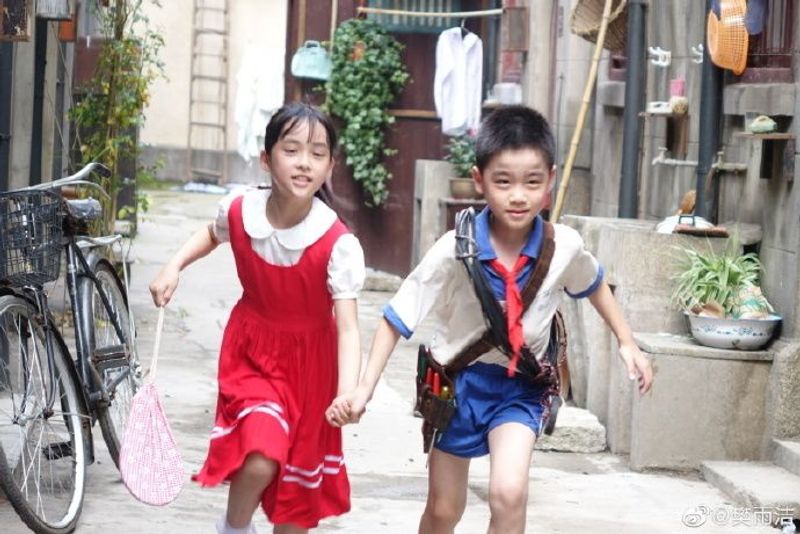
The fourth story is similar to the first flag-raising story, which tells that the Chinese people must raise the Chinese national flag at the right time in order to welcome the return of Hong Kong and highlight China’s sovereignty over Hong Kong. To this end, diplomats, watchmakers, and flag bearers all tried their best to show perfect teamwork.
The fifth story is also a comedy. On the eve of the Beijing Olympic Games, a taxi driver accidentally got a ticket to show off to everyone that he could attend the opening ceremony of the Olympic Games. As a result, the ticket accidentally fell into the hands of others. Although the driver wanted to watch the opening ceremony of the Olympic Games in person, he finally gave the tickets to the out-of-town boy who had come a long way to commemorate his late father.
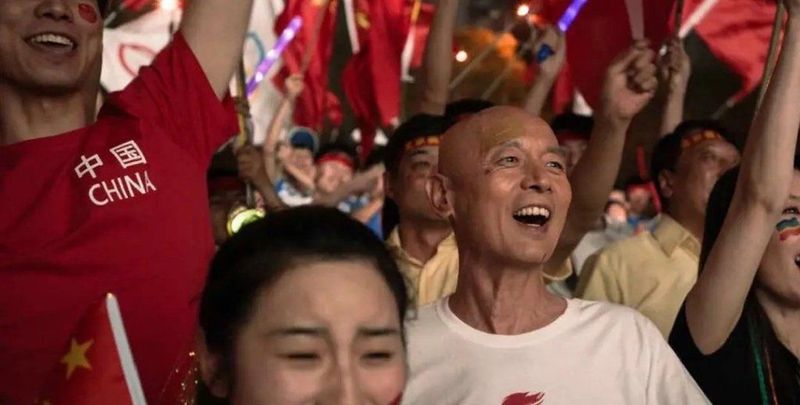
In the sixth story, a village official in China insisted on helping idle herdsmen, getting rid of their laziness and treachery, and turning them into industrious and brave good people. The village offcial paid too much to the villagers, like a father, but he himself lived in poverty and disease.
The seventh story may best reflect the spirit of obedience of the Chinese people. Before a military parade, an excellent pilot was arranged as a substitute and lost the opportunity to appear and perform meritorious service. The pilot who was assigned to the official stage encountered difficulties, and the alternate pilot was not in a hurry to replace the regular pilot-although she could do so, she did everything she could to help the regular pilot complete the task and silently.
While “My People, My Homeland” tells five stories, let’s do the same spoiler:
In the first story, a Beijing resident saves it hard to buy a nice car. However, as soon as he had saved enough money, relatives from his hometown came to Beijing to ask him for help. He found that his relative was seriously ill and was in urgent need of a sum of money for treatment. Of course, he didn’t want to give up his dream of buying a car, so he thought of a lot of cunning ways to help relatives at a low cost, but none of them succeeded. In the end, he still took out his savings to help his relatives tide over the difficulties.
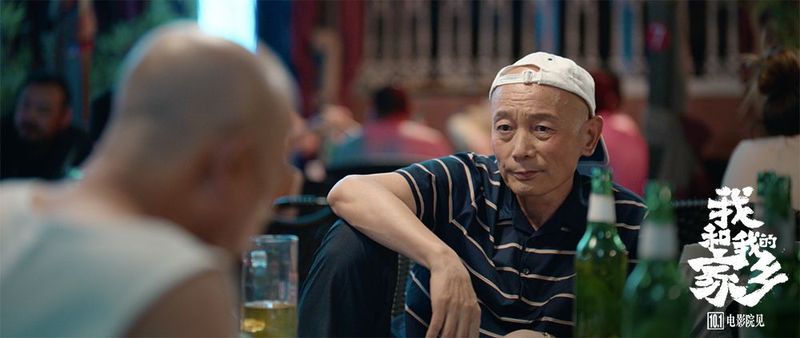
The second story is a very exaggerated comedy. In a Chinese mountain village, a UFO was photographed and the mountain village quickly became a tourist hotspot. A group of journalists and scientists thought the UFO was fake and went to the village to find the truth. Village officials and village entrepreneurs tried every means to obstruct the reporter’s investigation because once the UFO’s lies were exposed, the mountain village would no longer be able to rely on tourism to develop its economy, and the villagers would return to the hard days of poverty.
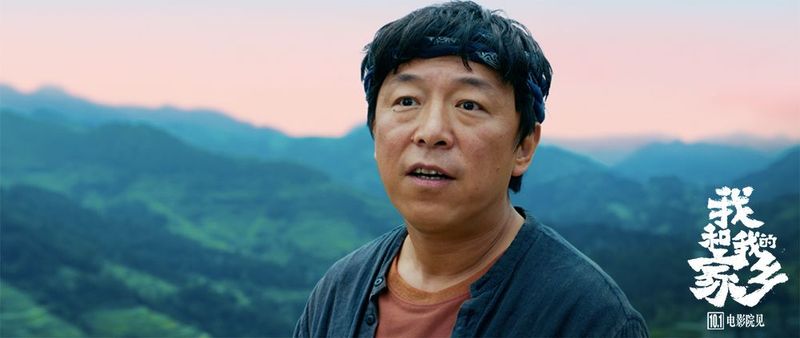
In the third story, an old teacher encounters a mental disorder and his mental state stays in a segment from a few decades ago. The doctor advised his family to help him return to the scene of decades ago and solve his regrets. The old man was a rural teacher who tried his best to teach various courses to his students in the extremely poor rural areas of China at that time. The students, who got an education at that time, now want to repay their teachers, so they restore the once poor Chinese countryside and even the weather at that time for the teachers at any cost.

In the fourth story, a school on the Loess Plateau held its anniversary, and students scattered all over the country rushed back to their alma mater to celebrate. Among these students, a businessman who calls himself a Monopoly is very treacherous and vulgar. In fact, he is penniless and heavily in debt. In order to win cooperation, he did not hesitate to use sweet words and cheated, which was very distasteful. However, when the school celebration began, everyone was surprised to find that the heavily indebted businessman had really been a rich man. He has used up all his possessions to help his poor hometown, but he still hasn’t given up.
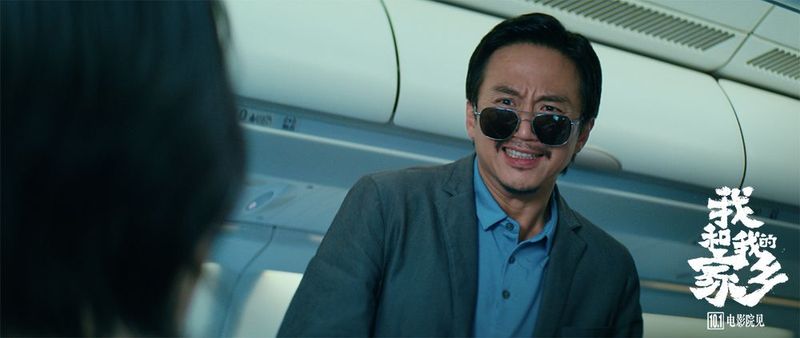
The fifth story is a hilarious comedy. A Chinese painter applied to a well-known international art school and received an admission notice. However, the organization arranged the task of poverty alleviation, and he resolutely decided to give up going abroad for further study and chose to go to the countryside to help the poor. His wife firmly opposed the decision, and he dared not go against his wife’s wishes. As a result, whenever he made a video call with his wife, the village officials arranged the surrounding environment like a foreign country, and the villagers accompanied him to act as a foreigner, which convinced his wife.
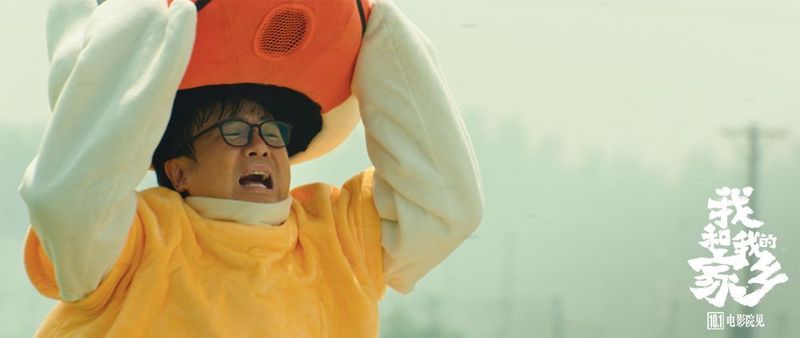
It is not difficult to see that in “My People, My Country” and “My People, My Homeland”, all kinds of characters have made a lot of contributions to the collective. They paid time and energy, labor and wisdom, paid a lot of money, sacrificed the opportunity of personal prosperity, sacrificed youth, sacrificed friendship, family, love, sacrificed health, and even sacrificed their lives.
[sociallocker id=”5614″]
But their sacrifice is valuable. Some of them have changed their hometown, some have helped the motherland tide over the difficulties, and some have made great scientific and technological, military, and economic achievements. But not all of what they do is such a great cause. Some of them only help the people around them to do a small thing, and some even help a person to achieve a small wish, but they all choose to sacrifice themselves.
In Western countries, such as the United States, such movie themes may be suspected of being hypocritical, political, or even brainwashing. However, in China, the story of individuals sacrificing themselves to achieve others is by no means rare. Every great or cruel story in the film is confirmed by true history in China. The stories of great village officials and rural teachers happen almost every day in China. Every year, there are tens of thousands of examples of such dedication to the collective.
During the COVID-19 epidemic in 2020, thousands of ordinary people in China were either actively involved in front-line epidemic prevention, contributing money, wisdom, and professional ability, or strictly abiding by collective arrangements for long-term self-isolation. If not, China will not be able to recover from the epidemic quickly.
The contributions of outstanding Chinese individuals such as Zhong Nanshan and Li Wenliang are in fact only a small part of the contributions made by millions of ordinary Chinese people. The Chinese are well aware of this and are proud of this dedication.
Therefore, films such as “The Wandering Earth”, “My People, My Country” and “My People, My Homeland” can be a great success in China. Many of the viewers who bought tickets have made unknown contributions to others and the collective. They or their relatives all know that even such an exaggerated Chinese story is true and correct.
[/sociallocker]
- Author:NotionNext
- URL:https://pandayoo.com/2020/10/08/looking-at-the-chinese-core-of-chinese-story-from-the-my-people-series
- Copyright:All articles in this blog, except for special statements, adopt BY-NC-SA agreement. Please indicate the source!